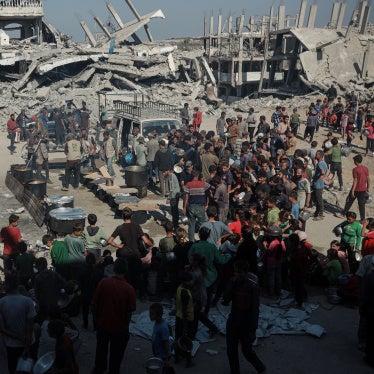Today's car bomb attack in the Iraqi holy city of al-Najaf was a deliberate attack on civilians that violates the most fundamental principles of international humanitarian law, Human Rights Watch said.
The attack occurred just as Friday worshippers were leaving the Imam Ali mosque that houses the Tomb of Ali, the son-in-law of the Prophet Muhammad. Early reports indicate that more than 80 people were killed, and many others trapped in the rubble of what had been the mosque entrance.
Those slain include Ayatollah Muhammad Baqer al-Hakim, believed to have been the prime target of the attack. A leading Shi'a cleric, he headed the Supreme Council for the Islamic revolution in Iraq.
"Attacks that intentionally target civilians are war crimes," said Hanny Megally, executive director of Human Rights Watch's Middle East division. "We call on all Iraqi political groups and community leaders to condemn these atrocities, to support every effort to prevent them, and to bring the perpetrators to justice."
The attacks have raised serious concerns among Iraqis about the ability of the U.S.-led coalition to maintain security in Iraq.
Friday's attack was the third car bombing against civilians in the past month in Iraq. The other two occurred in Baghdad, at the Jordanian Embassy on August 7 and at United Nations headquarters on August 19.
The holy city of al-Najaf has itself been the scene of recent attacks on Shi'a clerics. Abd al-Majid al-Khoie was killed by a mob in April. Five days ago, unknown persons attempted to assassinate Grand Ayatollah Sayyid Muhammad Sa`id al-Hakim, an uncle of Ayatollah al-Hakim, lightly injuring him but killing two of his bodyguards and a driver.








